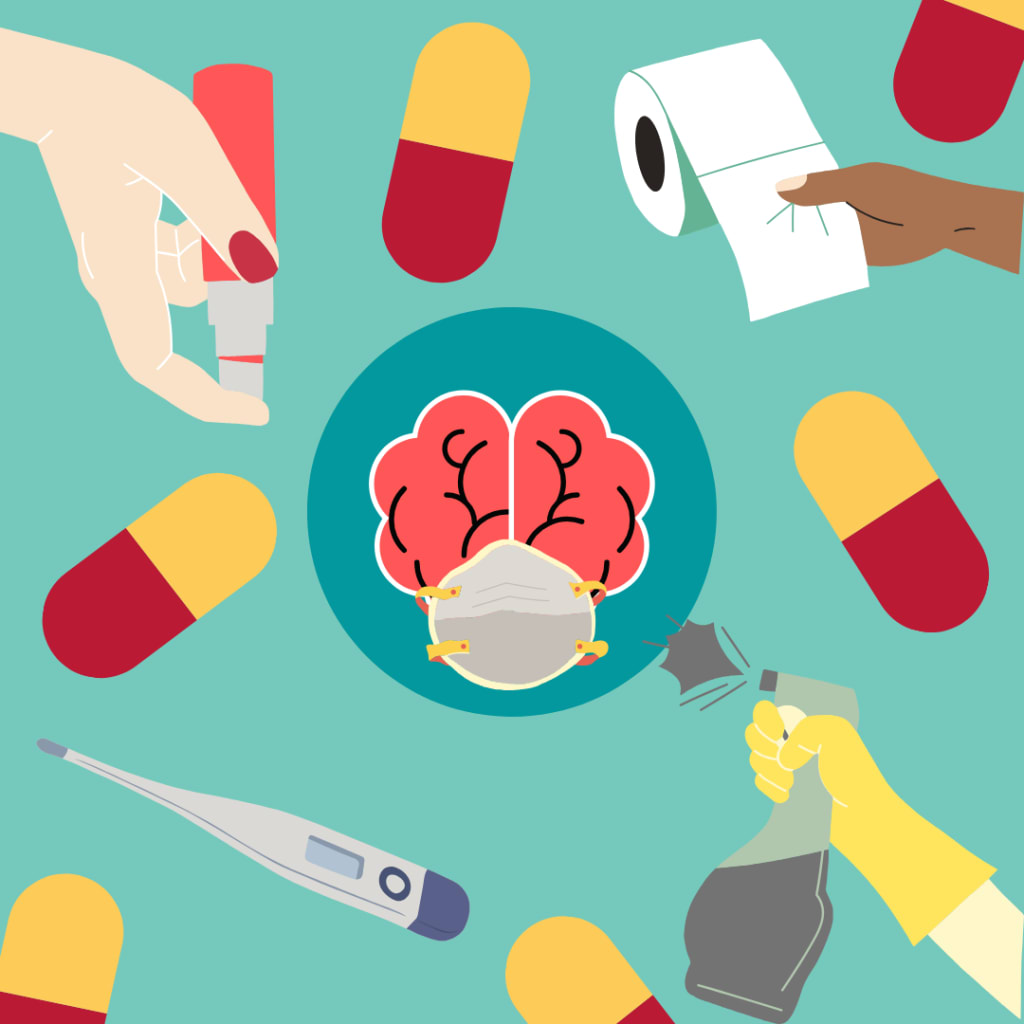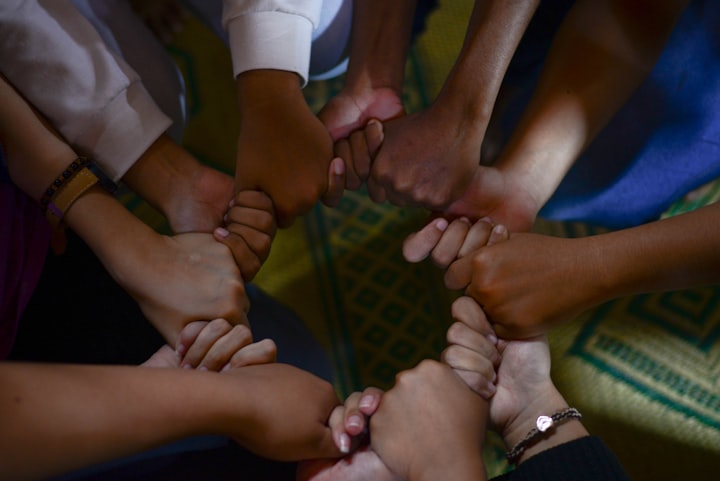The Pre-COVID Pandemic
COVID-19 further emphasizes the need for us to take our mental health more seriously

Pandemic.
The root of such a terrifying word sparks panic, fear of the unknown, the feeling of being out of control. The year of 2020 marked the start of a new decade but also forged a health crisis separate from the pandemic of COVID-19 itself.
Lurking behind the glossy eyes of millions of people daily lies another pandemic, one lacking the sort of publicity and attention COVID-19 gained in a matter of weeks, taking over the world by storm.
Mental Health. More specifically, poor mental health.
According to the National Institute of Mental Health, about one in five adults in the United States battles mental illness.
Although the encouragement of bettering one's mental health continues to gain ground via social media and social movements, this worldwide pandemic lacks the news coverage any other national pandemic receives.
We are suffering, internally.
We are killing ourselves, involuntarily, and voluntarily.
We are struggling, and so are others around us.
Depression and anxiety are just as potent to human life as COVID-19. Although such illnesses attack and poison different parts of the body, they both can lead to death.
In order to battle mental illness, we must address the issue as a national emergency, as a multi or asymptomatic, quickly spreading, dire disease. With the introduction of COVID-19 to human life, mental illness has spread like wildfire more than ever before.
Some feel trapped. Doomed. Alone. Sad. Isolated. Numb.
Not one person is immune.
COVID-19 may be just the wake-up call we need in order to start fighting the other detrimental facets of our society that impact us every day in negative ways, harming us and damaging our lives.
Will we find a way to heal, or continue to let it spread? Will we put down our screens and reconnect with the beauty of reality?
During COVID-19 quarantine, I found myself struggling to cope with the sudden lack of socialization and the hustle and bustle of my extremely busy daily schedule. I was no longer free to roam my college town, explore neighboring cities, go to the gym, snag a smooth coffee to the start my mornings, sit in a lecture hall, or go to work. Like many Americans, I found myself in a new world opposite of my normal. The structure I was accustomed to and quite honestly enjoyed was stripped down to a frightening simplicity. Being home was peaceful, but once I had exhausted myself from unpacking and cleaning, there wasn't much to do. My mood, and those around me, dampened, my laughs and smiles were replaced with tired glances out the window where I imagined what it would be like to finally go back out again. Thankful for good health, safety, and a little bit of income, I kept telling myself to remain positive, yet I still felt increasingly down. Like many people, sudden and extreme change in living posed as a necessary challenge. I am blessed to have not felt the pain of losing a loved one to the virus, but the emotional and mental slog of isolation only worsened the generalized anxiety and worry I battled prior to COVID.
Now that quarantine is being lifted in waves throughout America, the impacts of isolation and life change will quickly show. Nearly 17% of youth ages six to 17 years of age experience a mental health disorder and such a percentage is likely to rise (National Alliance on Mental Health). Mental illness typically lasts through adulthood or can develop later on in life. Millions of us battle some sort of mental enemy daily, often our own selves.
The COVID-19 pandemic is likely to not only increase the rates at which we see mental health problems in people from all nationalities, cultures, ages, religions, sexual identities, and backgrounds, but also to worsen the mental illnesses in people who dealt with such illness prior to the pandemic. Change creates discomfort, uncertainty, and stress, regardless if such change is as major as a global pandemic or as simple as a new job.
COVID-19 disrupted life as we know it, but we also created hope while most were hopeless and how to come together when we were forced to be apart. Once quarantine ends country-wide, the battle is far from over. The financial, socioeconomic, mental, physical, and emotional damage the virus plagued us with will continue to be a battle we face. We are now, more than ever, equipped to see the aspects of our personal lives that need to be changed for the good of our souls, the happiness of our minds, and the individual growth we need to grasp onto in order to save our own minds.
About the Creator
Carissa Nickell
Believer. College Student. Psychology Major. Future Army Officer. Creative Mind. Passionate, Persistent, Persevering.
@carissanickell on IG :)






Comments
There are no comments for this story
Be the first to respond and start the conversation.